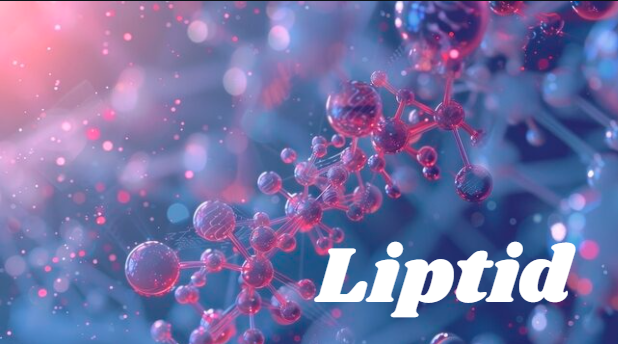In today’s health-conscious society, understanding the role of various compounds in our body is essential for maintaining optimal well-being. One such vital compound is lipids, commonly referred to as “liptid.”
Lipids are fatty compounds that perform a variety of functions in your body, from energy storage to cell signaling. This comprehensive guide delves into the world of liptid, exploring its functions, types, health implications, and much more.
What are Liptid?
Liptid, or lipids, are a diverse group of organic compounds that are insoluble in water but soluble in nonpolar solvents. They are essential for various bodily functions, including energy storage, structural components of cell membranes, and signaling molecules.
Types of Liptid
- Triglycerides: These are the most common type of lipids found in your body. They are stored in fat cells and used for energy.
- Phospholipids: These lipids are a major component of cell membranes, providing structure and protecting cellular integrity.
- Sterols: Cholesterol is the most well-known sterol, playing a crucial role in forming cell membranes and synthesizing hormones.
- Glycolipids: These lipids contain carbohydrate groups and are found in cell membranes, contributing to cell recognition and communication.
The Role of Liptid in the Body
Liptid plays several critical roles in the human body, each vital for maintaining health and function.
Energy Storage
Liptid, particularly triglycerides, are the primary form of stored energy in the body. When you consume more calories than your body needs, the excess energy is stored in fat cells as triglycerides. During periods of fasting or intense physical activity, these triglycerides are broken down to provide energy.
Cellular Structure and Function
Phospholipids and cholesterol are essential components of cell membranes. Phospholipids form a bilayer that provides fluidity and flexibility to the membrane, while cholesterol adds rigidity and stability. This structural integrity is crucial for protecting cells and facilitating communication between them.
Insulation and Protection
Liptid also serves as insulation for the body, helping to maintain body temperature by providing a thermal barrier. Additionally, fat deposits around organs act as a cushion, protecting them from physical impact.
Signaling Molecules
Certain liptid derivatives, such as steroid hormones and eicosanoids, act as signaling molecules. They regulate various physiological processes, including inflammation, immune responses, and reproductive functions.
Health Implications of Liptid
While liptid is essential for health, imbalances can lead to various health issues. Understanding these implications is crucial for maintaining a healthy lifestyle.
Cardiovascular Health
Cholesterol, a type of liptid, is often associated with cardiovascular health. Elevated levels of low-density lipoprotein (LDL) cholesterol can lead to plaque buildup in arteries, increasing the risk of heart disease and stroke. Conversely, high-density lipoprotein (HDL) cholesterol helps remove LDL cholesterol from the bloodstream, reducing cardiovascular risk.
Obesity and Metabolic Syndrome
Excessive accumulation of liptid, particularly triglycerides, can lead to obesity and metabolic syndrome. These conditions are risk factors for several chronic diseases, including type 2 diabetes, hypertension, and cardiovascular disease.
Inflammatory Conditions
Certain liptid derivatives, such as eicosanoids, play a role in inflammation. While acute inflammation is a protective response, chronic inflammation can contribute to various diseases, including arthritis, inflammatory bowel disease, and even cancer.
Sources of Liptid
Liptid is obtained from various dietary sources, each contributing to the body’s lipid profile.
Dietary Fats
- Saturated Fats: Found in animal products like meat and dairy, as well as tropical oils like coconut oil.
- Unsaturated Fats: Found in plant-based oils, nuts, seeds, and fatty fish. These include monounsaturated and polyunsaturated fats, which are beneficial for heart health.
- Trans Fats: Found in processed and fried foods. These should be limited as they can raise LDL cholesterol levels and lower HDL cholesterol.
Cholesterol
Dietary cholesterol is found in animal products such as meat, eggs, and dairy. While dietary cholesterol has less impact on blood cholesterol levels than previously thought, it is still important to monitor intake.
Balancing Liptid Intake for Optimal Health
Maintaining a balance of different types of liptid is crucial for health. Here are some tips for optimizing liptid intake:
- Choose Healthy Fats: Prioritize unsaturated fats from plant-based sources and fatty fish.
- Limit Saturated and Trans Fats: Reduce intake of animal products and processed foods high in these fats.
- Include Omega-3 Fatty Acids: These polyunsaturated fats, found in fatty fish and flaxseeds, have anti-inflammatory properties and support heart health.
- Monitor Portion Sizes: Even healthy fats are calorie-dense, so it’s important to consume them in moderation.
FAQs about Liptid
Q: What is the difference between saturated and unsaturated fats? A: Saturated fats are solid at room temperature and found in animal products, while unsaturated fats are liquid at room temperature and found in plant-based oils and fatty fish. Unsaturated fats are generally considered healthier for the heart.
Q: How does liptid affect cholesterol levels? A: Dietary liptid can influence blood cholesterol levels. Saturated and trans fats can raise LDL cholesterol levels, while unsaturated fats, particularly polyunsaturated fats, can help lower LDL cholesterol and raise HDL cholesterol.
Q: Can liptid contribute to weight gain? A: Yes, excessive intake of any type of liptid can contribute to weight gain, as fats are calorie-dense. However, healthy fats, when consumed in moderation, can be part of a balanced diet.
Q: What are some healthy sources of liptid? A: Healthy sources of liptid include avocados, nuts, seeds, olive oil, and fatty fish like salmon. These foods provide beneficial unsaturated fats.
Q: Are all cholesterol types bad for health? A: No, not all cholesterol is bad. HDL cholesterol is considered good because it helps remove LDL cholesterol from the bloodstream, reducing the risk of heart disease.
Conclusion
Liptid, or lipids, are essential compounds that play various roles in the body, from energy storage to cell signaling. Understanding the different types of liptid, their functions, and their health implications can help you make informed dietary choices and maintain optimal health.
By balancing your intake of different types of fats and prioritizing healthy sources, you can support your body’s needs and reduce the risk of chronic diseases.



